
Molepolole: The Gateway to Kalahari Adventure
Molepolole is one of Botswana's largest traditional villages and offers a unique blend of cultural heritage and modern living. Located just 50 kilometers from the capital city, Gaborone, Molepolole serves as a perfect starting point for exploring the vast Kalahari Desert. The village is home to the Bakwena people and provides a rich insight into their traditions and way of life. Visitors to Molepolole can explore the Kgosi Sechele I Museum, which provides a glimpse into the history and culture of the Bakwena tribe. The museum also offers a fascinating look at the area's colonial past and its impact on the local population. The village itself is characterized by traditional huts and modern buildings, creating a striking contrast that highlights Botswana's development. Molepolole is also known for its breathtaking landscapes. The surrounding areas offer numerous opportunities for outdoor activities such as hiking, bird-watching, and wildlife spotting. The nearby Khutse Game Reserve is a must-visit for nature enthusiasts, offering a chance to see Botswana's diverse flora and fauna up close. The reserve is less crowded than other parks, providing a more intimate and peaceful experience with nature.
Local tips in Molepolole
- Visit the Kgosi Sechele I Museum for an in-depth understanding of the Bakwena tribe's history.
- Plan a trip to the Khutse Game Reserve for a quieter, more intimate wildlife experience.
- Try to visit during local festivals to experience the vibrant culture and traditions of Molepolole.
- Wear comfortable walking shoes as the village and surrounding areas are best explored on foot.
- Carry a hat and sunscreen to protect yourself from the strong Botswana sun.
Molepolole: The Gateway to Kalahari Adventure
Molepolole is one of Botswana's largest traditional villages and offers a unique blend of cultural heritage and modern living. Located just 50 kilometers from the capital city, Gaborone, Molepolole serves as a perfect starting point for exploring the vast Kalahari Desert. The village is home to the Bakwena people and provides a rich insight into their traditions and way of life. Visitors to Molepolole can explore the Kgosi Sechele I Museum, which provides a glimpse into the history and culture of the Bakwena tribe. The museum also offers a fascinating look at the area's colonial past and its impact on the local population. The village itself is characterized by traditional huts and modern buildings, creating a striking contrast that highlights Botswana's development. Molepolole is also known for its breathtaking landscapes. The surrounding areas offer numerous opportunities for outdoor activities such as hiking, bird-watching, and wildlife spotting. The nearby Khutse Game Reserve is a must-visit for nature enthusiasts, offering a chance to see Botswana's diverse flora and fauna up close. The reserve is less crowded than other parks, providing a more intimate and peaceful experience with nature.
When is the best time to go to Molepolole?
Iconic landmarks you can’t miss
The Three Dikgosi Monument
Honoring Botswana's founding fathers: Khama III, Sebele I, and Bathoen I, who secured the nation's independence. A landmark in Gaborone's CBD.
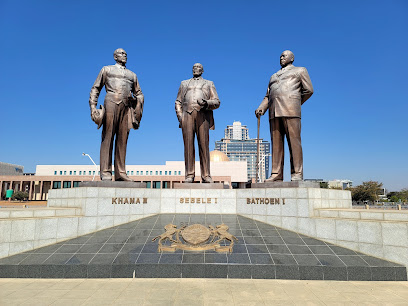
Mafenyatlala Shopping Mall
Experience Molepolole's vibrant culture at Mafenyatlala Shopping Mall, offering diverse retail, dining, and entertainment options for everyone.
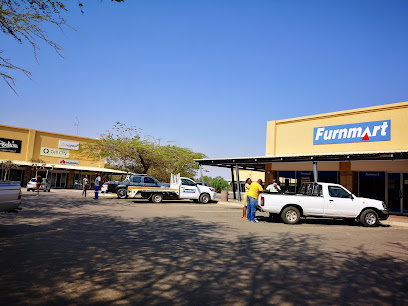
National Museum and Art Gallery
Discover Botswana's heritage at the National Museum and Art Gallery in Gaborone: art, history, and culture await!
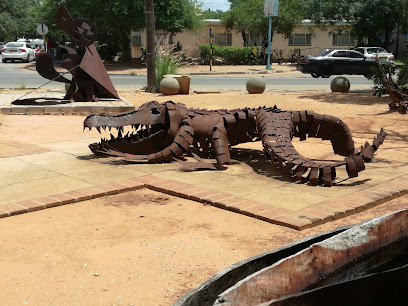
Mogonye Gorge
Discover Mogonye Gorge: A Botswana nature preserve with dramatic cliffs, hiking trails, diverse wildlife, and cultural significance near Lekgolobotlo.
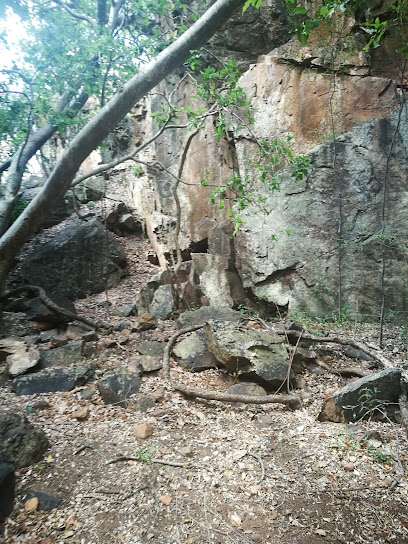
Kgosi Sechele I Museum
Explore Botswana's heritage at the Kgosi Sechele I Museum in Molepolole, celebrating the culture of the Bakwena people and their leader, Kgosi Sechele I.

Moruleng- matlhalerwa
Discover Botswana's heritage at Moruleng-Matlhalerwa, a historical landmark in Molepolole offering a glimpse into the nation's rich cultural past.

MOLEPOLE SHOWGROUDS
Experience community and relaxation at Molepole Showgrounds, the heart of Molepolole, Botswana.

Mmakgosing
Discover Mmakgosing in Molepolole: A journey into Botswana's past and the heart of Bakwena culture. Explore history, traditions, and local stories.

Main Kgotla
Experience Botswana's heritage at Molepolole's Main Kgotla: a vibrant hub of culture, community, and tradition in the heart of the Kalahari gateway.

Old Molepolole Ruins
Discover Botswana's heritage at the Old Molepolole Ruins in Ngware, where history, culture, and natural beauty converge for an unforgettable experience.

Unmissable attractions to see
Mokolodi Nature Reserve
Discover Botswana's wildlife and conservation efforts at Mokolodi Nature Reserve, a short drive from Gaborone.
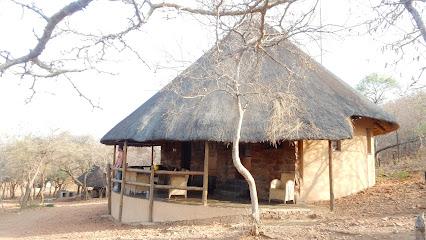
Botswana Craft
Discover Botswana's artistic soul: Handmade crafts, cultural events, and traditional cuisine await at Botswana Craft in Gaborone.
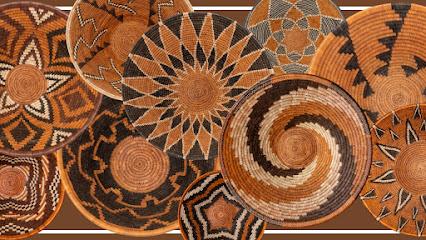
Lion Park Resort
Experience thrilling water slides, amusement rides, and majestic lions at Lion Park Resort, Gaborone's ultimate destination for family fun and adventure!
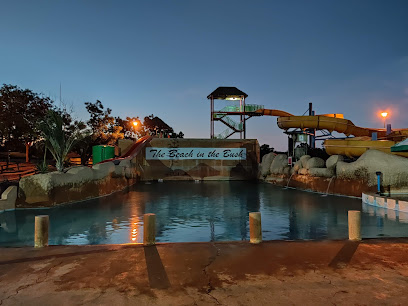
Tsholofelo Park
Escape to Gaborone's tranquil Tsholofelo Park: a green oasis with playgrounds, walking paths, and a vibrant community atmosphere.
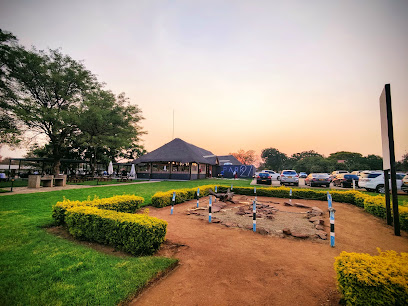
Kgale Hill Public Park
Hike to panoramic views, discover nature trails, and experience tranquility at Gaborone's iconic Kgale Hill Public Park, the 'Sleeping Giant'.
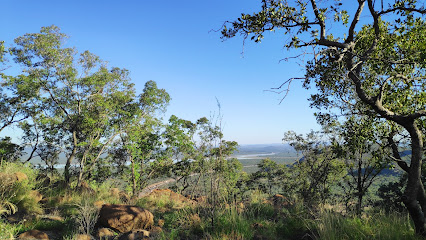
National Museum and Art Gallery
Discover Botswana's cultural heritage at the National Museum and Art Gallery in Gaborone, showcasing history, art, and natural wonders.
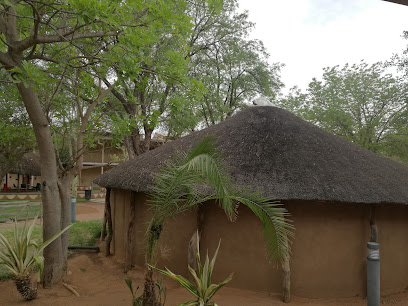
ISKCON Temple, Botswana
Discover tranquility and spirituality at Gaborone's ISKCON Temple, a haven of culture and peace.
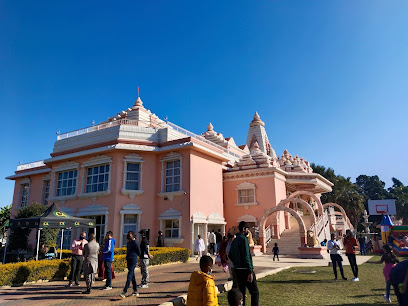
Balaji Temple
Discover the spiritual and cultural heart of Gaborone at the Balaji Temple, a stunning example of Dravidian architecture and Hindu tradition.
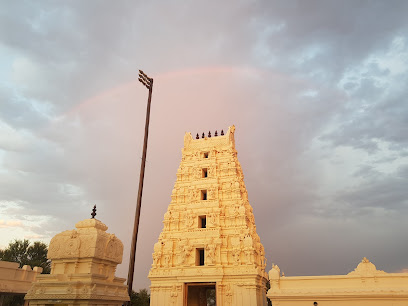
Boetelo Sun Valley, Notwane
Escape to Boetelo Sun Valley in Gaborone for breathtaking landscapes, serene nature walks, and a peaceful retreat from city life.
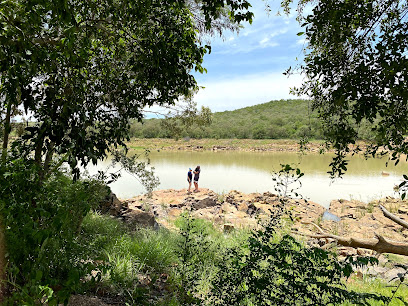
SERENE VIEW GARDENS PHAKALANE OODI RD
Discover tranquility in Gaborone at Serene View Gardens: lush greenery, peaceful paths, and a refreshing escape into nature's beauty.
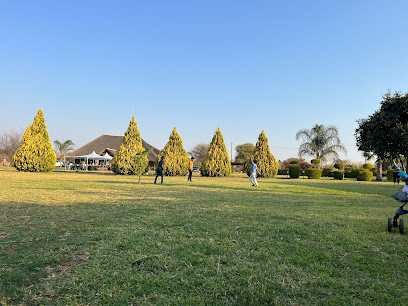
National Botanical Garden
Discover Botswana's natural heritage at Gaborone's National Botanical Garden, a serene sanctuary of indigenous flora and historical significance.
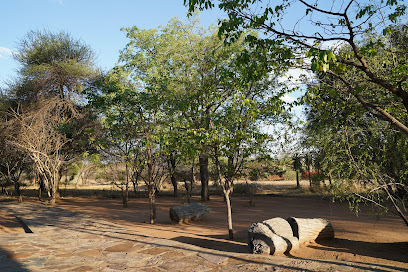
Gaborone Game Reserve
Discover Botswana's wildlife in the heart of the capital at Gaborone Game Reserve, a convenient and accessible natural escape.
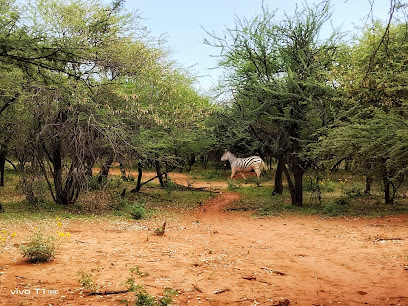
Matsieng Footprints
Explore ancient rock engravings at Matsieng Footprints near Rasesa, Botswana, revealing the rich cultural heritage and legends of the Batswana people.
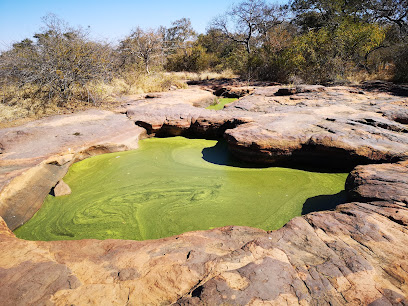
Sabi Sabi Gardens
Escape to Sabi Sabi Gardens in Mochudi: A blend of nature, culture, and events for a memorable Botswana experience. Serene gardens and vibrant flora await!
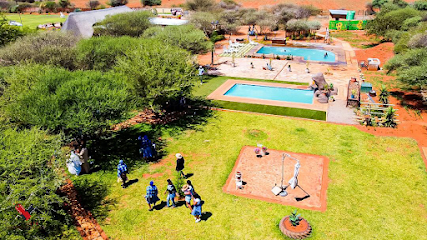
Manyana Rock Paintings
Uncover ancient stories etched in stone at Manyana Rock Paintings, a window into Botswana's cultural heritage.
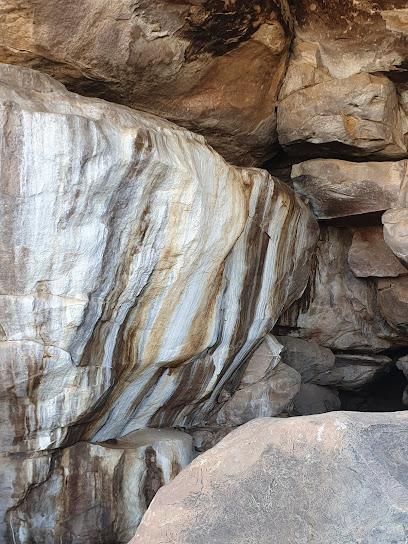
Essential places to dine
Avani Gaborone Resort & Casino
Discover unparalleled luxury at Avani Gaborone Resort & Casino - where comfort meets adventure in Botswana's vibrant capital.
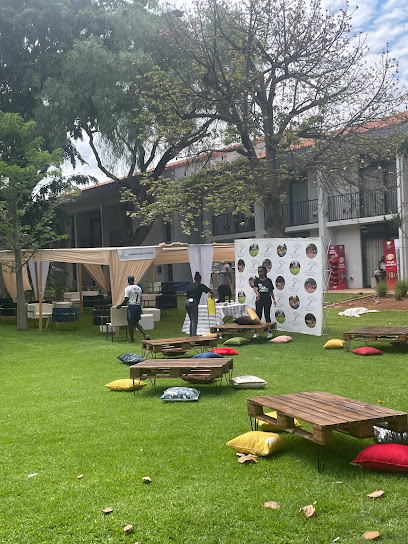
Bull & Bush
Discover Bull & Bush: A Culinary Gem in Gaborone Offering Local Delights and International Flavors.
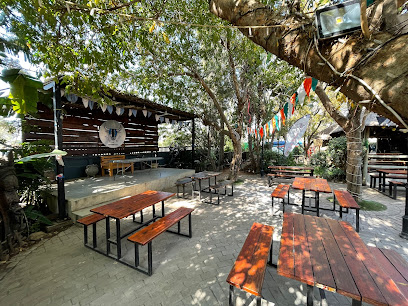
Sanitas Tea Garden
Discover tranquility at Sanitas Tea Garden in Gaborone - where delightful breakfasts meet lush garden views.
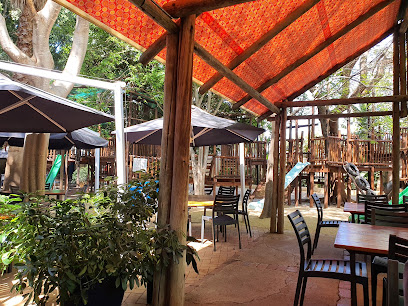
The Daily Grind Cafe + Kitchen
Experience the rich flavors of Botswana at The Daily Grind Cafe + Kitchen - where every meal tells a story.
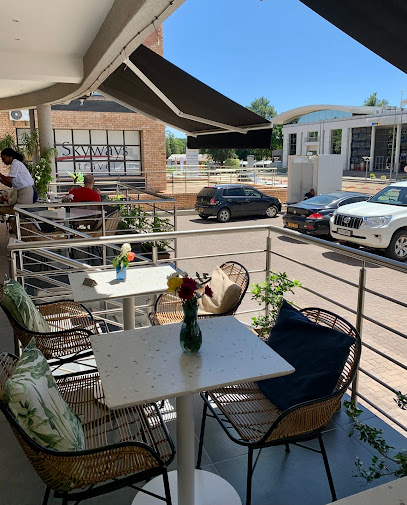
Table50Two
Experience the vibrant flavors of Gaborone at Table50Two – where local ingredients meet culinary creativity.
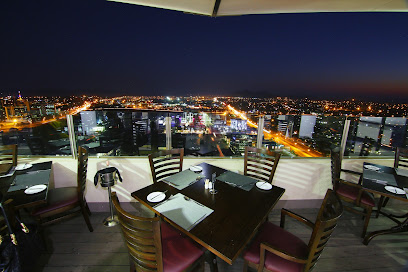
Two Six Seven
Discover Two Six Seven in Gaborone - where local flavors meet international cuisine in a stunning riverside setting.
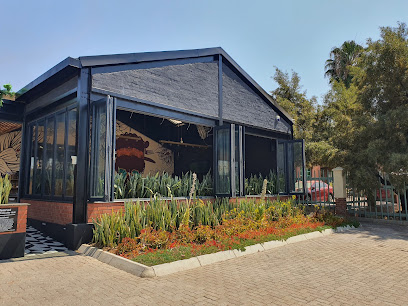
Indiana Spur
Experience the best steakhouse in Gaborone at Indiana Spur—where African flavors meet hearty meals in a family-friendly atmosphere.
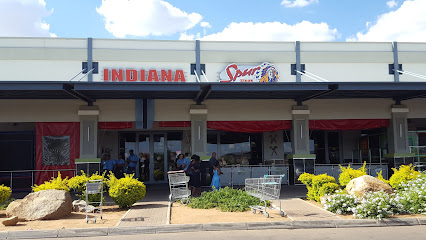
Park 27
Discover the vibrant flavors of Botswana at Park 27, Gaborone's premier restaurant offering local delicacies and international cuisine.
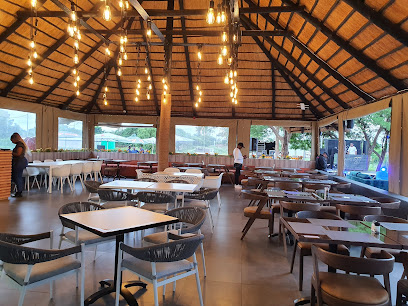
Mokolodi Restaurant
Experience exquisite dining surrounded by nature at Mokolodi Restaurant in Botswana's stunning Mokolodi Nature Reserve.
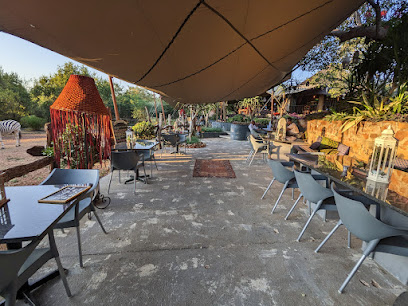
Rodizio Brazillian Restaurant
Experience the vibrant flavors of Brazil at Rodizio Brazilian Restaurant in Gaborone - an unforgettable grill adventure awaits.
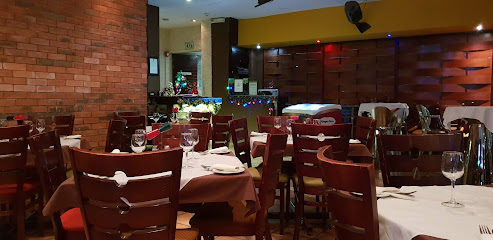
KFC Molepolole
Discover delicious fast food at KFC Molepolole—your go-to spot for tasty chicken meals in Botswana's vibrant Mafenyatlala Mall.
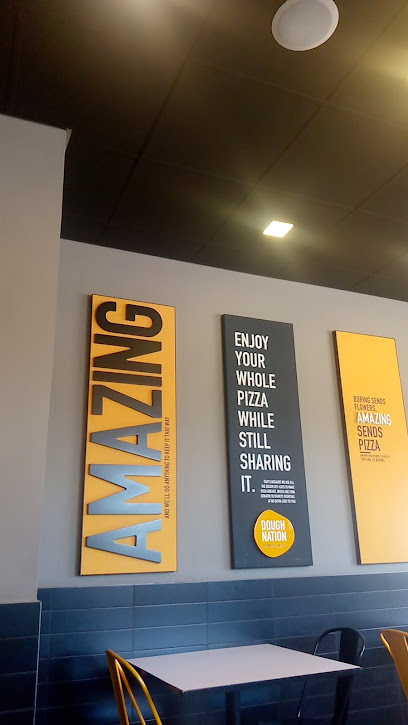
Rhapsody's
Experience culinary delight at Rhapsody's in Gaborone - where local flavors meet international flair in a vibrant setting.
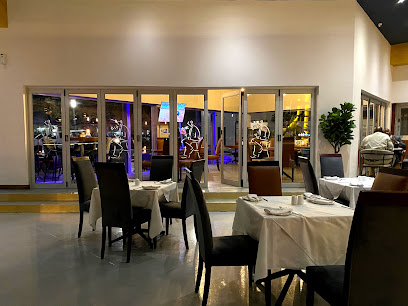
Touch Down
Experience the vibrant flavors of Gaborone at Touch Down - a family-friendly dining destination offering delicious cuisine and warm hospitality.
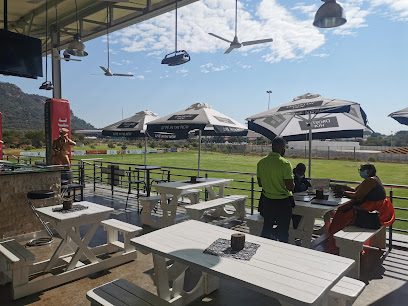
Luna Rosa Sarona City Mall
Experience the essence of Italy at Luna Rosa Sarona City Mall - where exquisite flavors meet exceptional service in Gaborone.
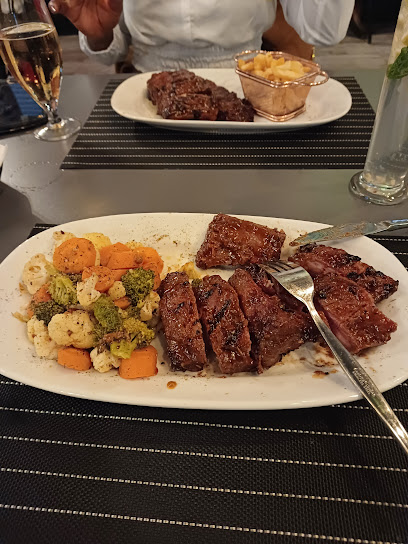
Studio Cafe BW
Experience delightful Western cuisine at Studio Cafe BW in Gaborone – where fresh ingredients meet cozy dining.
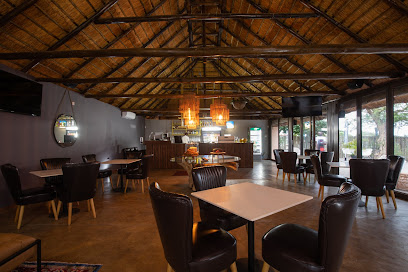
Markets, malls and hidden boutiques
Mafenyatlala Shopping Mall
Explore the best of shopping and local cuisine at Mafenyatlala Shopping Mall in Molepolole, Botswana, where culture and commerce meet.
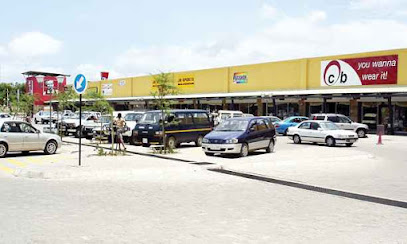
Shoprite Molopolole
Shoprite Molopolole: Your one-stop supermarket in Molepolole for fresh groceries and local essentials.
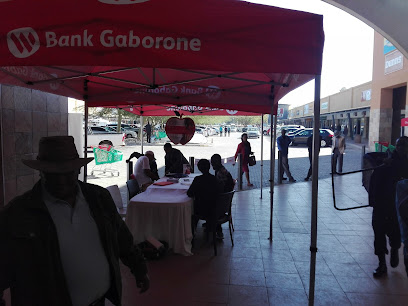
SPAR Molepolole
Explore SPAR Molepolole - your gateway to local groceries, fresh produce, and an authentic taste of Botswana.
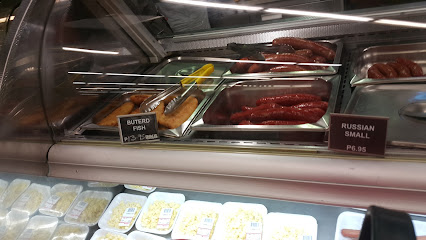
Supa Save Shopping Complex
Discover the vibrant shopping scene and local culture at Supa Save Shopping Complex in Molepolole, Botswana.
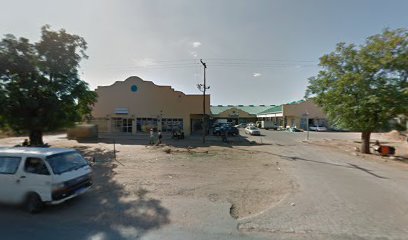
Choppies
Choppies in Molepolole: Your one-stop grocery shop for local flavors and everyday essentials.
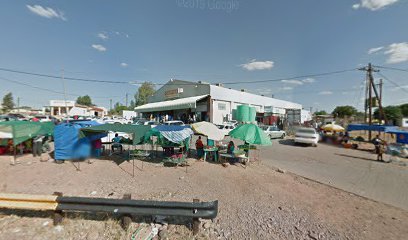
Choppies Molepolole
Explore Choppies Molepolole, where fresh produce meets local culture in Botswana's vibrant grocery shopping experience.
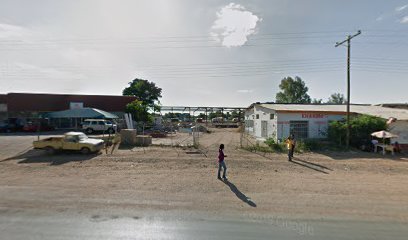
Village Gate Mall
Explore Village Gate Mall in Molepolole - where shopping meets local culture in a vibrant and welcoming atmosphere.
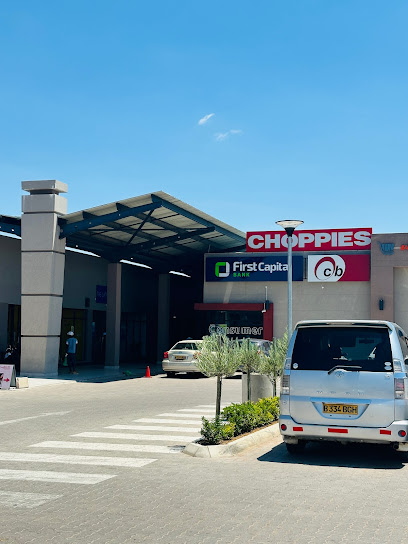
Osman Trading Store
Experience local culture and charm at Osman Trading Store, a vibrant shopping mall in Molepolole offering unique crafts and modern goods.

SuperSpar
Discover the charm of SuperSpar in Molepolole, a shopping mall that combines local culture with a diverse retail experience.
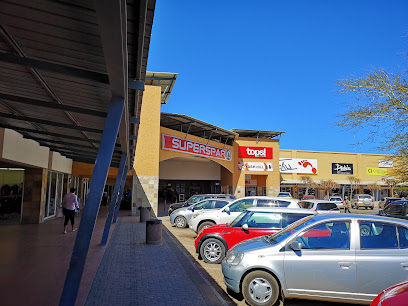
goolams'
Experience the charm of Molepolole at Goolams', offering diverse shopping options from local crafts to everyday essentials in a vibrant atmosphere.
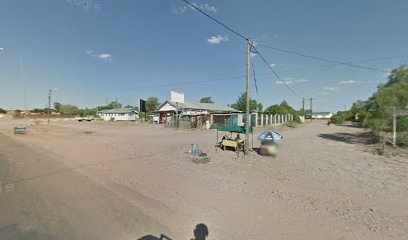
KE- Pebe General Dealer
Experience the essence of Botswana at KE- Pebe General Dealer, a local grocery store in Molepolole offering fresh produce and traditional snacks.
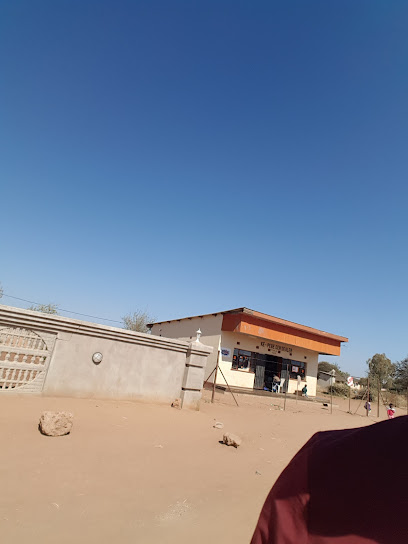
Golden Flower Apparel
Discover the vibrant styles of Botswana at Golden Flower Apparel in Molepolole, where local fashion meets cultural artistry.

Sefalana Shopper Molepolole 1
Discover the vibrant shopping scene at Sefalana Shopper Molepolole, where quality meets affordability in a lively outlet mall.

Options
Explore vibrant local fashion at Options Clothing Store, where unique styles and Botswana's rich culture come together in every piece.
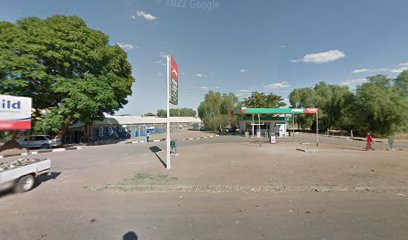
Dunns Molepolole
Explore the vibrant fashion scene at Dunns Molepolole, where trendy clothing meets affordability for both men and women.

Essential bars & hidden hideouts
Route 3 Bar & Butchery Complex
Discover the vibrant spirit of Botswana at Route 3 Bar & Butchery Complex, where delicious grilled meats and refreshing drinks await you.
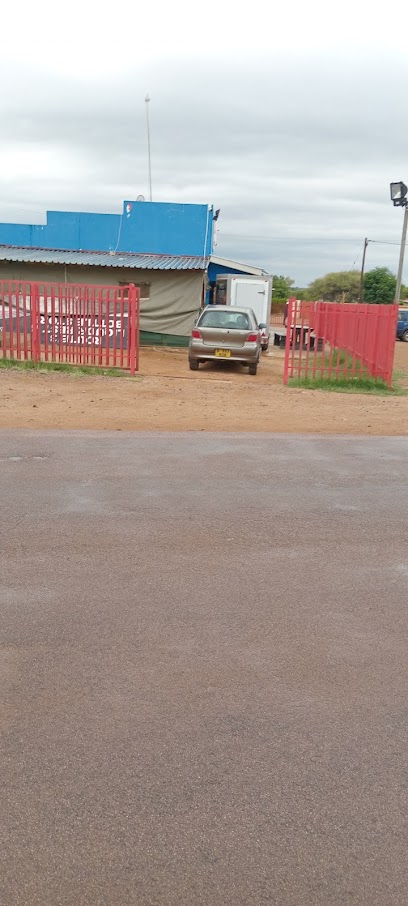
Masa Bar
Experience the vibrant nightlife at Masa Bar in Molepolole, where great drinks and live music create unforgettable moments.
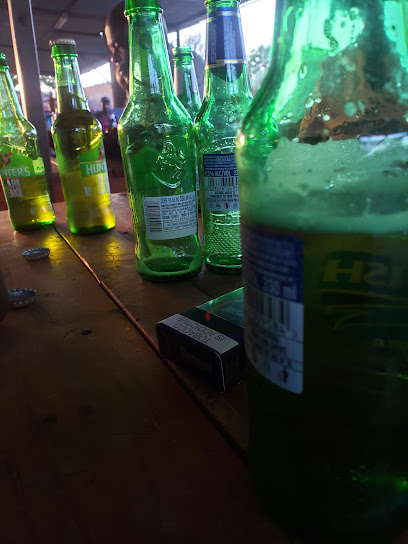
Semphete bar
Experience the vibrant nightlife of Molepolole at Semphete Bar, where local culture and refreshing drinks come together.

Pub With No Name
Discover the heart of Molepolole at Pub With No Name - a charming grill bar perfect for tasting local flavors and soaking up the vibrant culture.
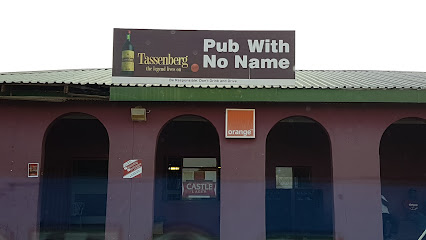
KO-MAU BAR
Discover authentic Botswana grilling at KO-MAU BAR in Molepolole, where local flavors meet a vibrant dining experience.

Domboshaba Bar
Experience the lively atmosphere and local culture at Domboshaba Bar in Molepolole, a perfect spot for drinks and socializing.
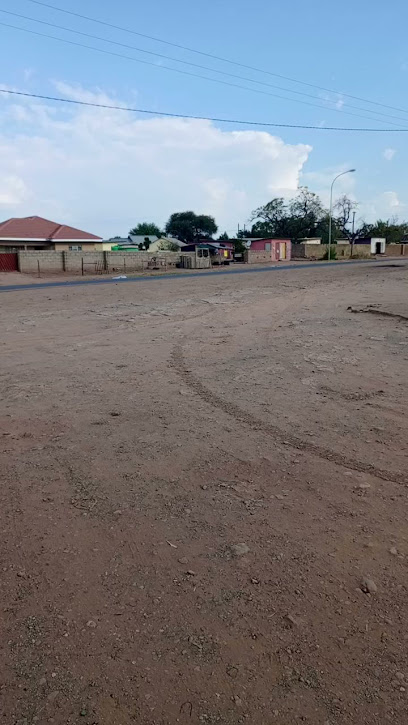
The Big Six Bar
Discover the vibrant nightlife at The Big Six Bar in Molepolole, where local flavors and a welcoming atmosphere create unforgettable experiences.
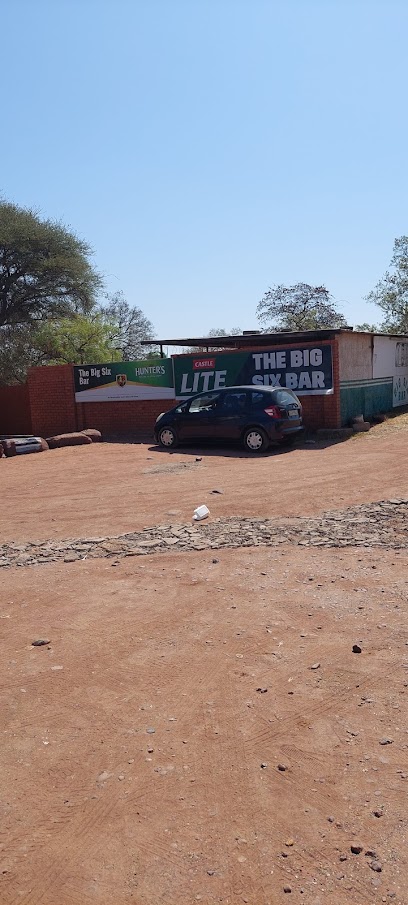
Bonatla Bar
Experience the vibrant flavors of Botswana at Bonatla Bar, a premier grill destination in Molepolole, perfect for food lovers and socializers alike.

Six Chill & Grill
Experience the vibrant culture and delicious flavors at Six Chill & Grill, the top bar in Molepolole for relaxation and local cuisine.
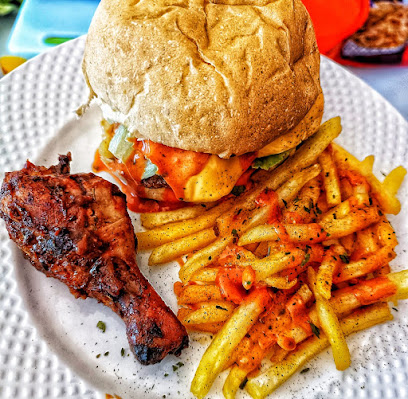
Maiteko Bar
Discover the vibrant flavors of Botswana at Maiteko Bar, your go-to destination for delicious grilled dishes in Molepolole.

BOSELE BAR
Discover the lively Bosele Bar in Molepolole, where local culture meets refreshing drinks in an inviting atmosphere.

Legae la kwena bar
Experience the vibrant nightlife and local culture at Legae la kwena Bar in Molepolole, a must-visit for every traveler.

Speak Easy Bar
Discover the vibrant atmosphere of Speak Easy Bar in Molepolole, where relaxation meets local culture and great drinks await.
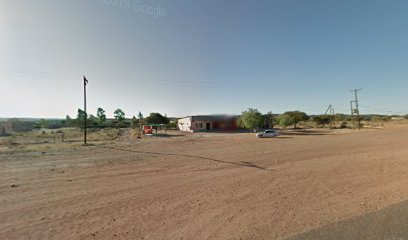
Kismayu Bar
Experience the local spirit at Kismayu Bar in Molepolole, where friendly vibes and refreshing drinks await every traveler.

Local Phrases
-
- HelloDumela
[doo-meh-lah] - GoodbyeTsamaya sentle
[tsah-mah-yah sehn-tleh] - YesEe
[ee] - NoNnyaa
[nn-yah] - Please/You're welcomeKe kopa
[keh koh-pah] - Thank youKe a leboga
[keh ah leh-boh-gah] - Excuse me/SorryNtsa ke
[nt-sah keh] - How are you?O kae?
[oh kah-eh?] - Fine. And you?Ke teng. Le wena?
[keh te-ng. leh weh-nah?] - Do you speak English?O bua se se Inglish?
[oh boo-ah seh seh ing-gleesh?] - I don't understandGa ke itse
[gah keh ee-tseh]
- HelloDumela
-
- I'd like to see the menu, pleaseKe kopa go bona mokgwa, le kamoso
[keh koh-pah goh boh-nah moh-kwah, leh kah-moh-soh] - I don't eat meatGa ke ja nyama
[gah keh jah nyah-mah] - Cheers!Maitseo!
[mah-eet-seh-oh] - I would like to pay, pleaseKe kopa go dira dipalo, le kamoso
[keh koh-pah goh dee-rah dee-pah-loh, leh kah-moh-soh]
- I'd like to see the menu, pleaseKe kopa go bona mokgwa, le kamoso
-
- Help!Bo ntate!
[boh n-tah-teh!] - Go away!Tla go bona!
[tlah goh boh-nah!] - Call the Police!Bula Polase!
[boo-lah poh-lah-seh!] - Call a doctor!Bula mofati!
[boo-lah moh-fah-tee!] - I'm lostKe itumetse
[keh ee-too-meh-tseh] - I'm illKe a go betwa
[keh ah goh beh-t-wah]
- Help!Bo ntate!
-
- I'd like to buy...Ke kopa go rekela...
[keh koh-pah goh reh-keh-lah] - I'm just lookingKe kgopela go bona fela
[keh koh-peh-lah goh boh-nah feh-lah] - How much is it?E reng?
[eh reh-ng?] - That's too expensiveEna e bokete
[eh-nah eh boh-keh-teh] - Can you lower the price?O ka reketse sepe?
[oh kah reh-keh-tseh seh-peh?]
- I'd like to buy...Ke kopa go rekela...
-
- What time is it?Ke nako mang?
[keh nah-koh mah-ng?] - It's one o'clockKe nako ya mokgwa
[keh nah-koh yah moh-kwah] - Half past (10)Nako ya boraro (le mokgwa)
[nah-koh yah boh-rah-roh (leh moh-kwah)] - MorningBoledi
[boh-leh-dee] - AfternoonNtwa
[nt-wah] - EveningMakgowa
[mah-koh-wah] - YesterdayNgwaga o tswa
[ng-wah-gah oh ts-wah] - TodayLehatshe
[leh-haht-sheh] - TomorrowNgwaga otlhe
[ng-wah-gah oh-tlh-eh] - 1Mo
[moh] - 2Pele
[peh-leh] - 3Tlhatlha
[tl-ha-t-lah] - 4Nnai
[nn-ai] - 5Tlhano
[tl-hah-noh] - 6Tlhaping
[tl-hah-ping] - 7Moša
[moh-shah] - 8Nngwe
[nn-gweh] - 9Nngwele
[nn-gweh-leh] - 10Lesome
[leh-soh-meh]
- What time is it?Ke nako mang?
-
- Where's a/the...?Kae...?
[kah-eh...?] - What's the address?Sebaka se kae?
[seh-bah-kah seh kah-eh?] - Can you show me (on the map)?O ka nna ka bona (ka semapeng)?
[oh kah nah kah boh-nah (kah seh-mah-peh-ng)?] - When's the next (bus)?Nako ye e kae (bus)?
[nah-koh yeh eh kah-eh (bus)?] - A ticket (to ....)Ditokiseng (go ....)
[dee-toh-kee-seh-ng goh ....]
- Where's a/the...?Kae...?
History of Molepolole
-
Molepolole, often referred to as the 'Gateway to the Kalahari,' is one of the largest traditional villages in Botswana. It is the capital of the Bakwena tribe and was founded in the early 19th century by the Bakwena people under the leadership of Kgosi (Chief) Sebele I. The village was established as a central location for the Bakwena, providing them with a strategic position for trade and defense.
-
Kgosi Sechele I, a prominent leader of the Bakwena, played a significant role in the history of Molepolole. He ruled from 1829 to 1892 and was known for his diplomatic skills and efforts to modernize his community. Sechele I was one of the first African leaders to convert to Christianity, influenced by missionary David Livingstone. His reign saw the introduction of Western education and Christianity, which had a lasting impact on the cultural landscape of Molepolole.
-
European missionaries, including David Livingstone, arrived in Molepolole in the mid-19th century. Livingstone's interactions with Kgosi Sechele I are well-documented, as Sechele became one of Livingstone's first converts to Christianity. The missionaries established schools and churches, which played a crucial role in the spread of Western education and religious practices in the area. These interactions also brought about significant changes in the social and cultural fabric of the village.
-
In 1852, the Battle of Dimawe took place near Molepolole between the Bakwena, led by Kgosi Sechele I, and the Boers from the South African Republic. The conflict arose due to tensions over land and resources. Sechele I and his warriors successfully defended their territory, showcasing their resilience and strategic prowess. This battle is a significant historical event that highlights the Bakwena's determination to protect their land and sovereignty.
-
During the late 19th and early 20th centuries, Molepolole, like much of Botswana, came under British colonial rule. The village served as an administrative center for the colonial government, which implemented various policies affecting the local population. Despite the challenges of colonialism, the people of Molepolole maintained their cultural heritage and continued to thrive as a community.
-
Botswana gained independence from British rule in 1966, and Molepolole played a role in the country's journey towards self-determination. Post-independence, the village has seen significant development and modernization. Infrastructure improvements, such as the construction of roads, schools, and healthcare facilities, have contributed to the growth and prosperity of Molepolole. Today, it remains an important cultural and economic hub in Botswana.
-
Molepolole is rich in cultural heritage and traditions, deeply rooted in the customs of the Bakwena people. Traditional ceremonies, such as the Domboshaba Festival, celebrate the history and culture of the community. The village is also known for its traditional crafts, including basket weaving and pottery. These cultural practices are passed down through generations, preserving the unique identity of Molepolole.
Molepolole Essentials
-
Molepolole is located approximately 50 kilometers west of Gaborone, the capital city of Botswana. The nearest international airport is Sir Seretse Khama International Airport in Gaborone. From the airport, you can take a taxi or rent a car to reach Molepolole, which typically takes around 45 minutes to an hour by road. There are also public buses that operate from Gaborone to Molepolole, offering a cost-effective travel option.
-
Within Molepolole, you can get around by taxis, which are readily available and relatively inexpensive. For a more local experience, you can use minibuses known as 'combis' that operate on fixed routes throughout the town. Renting a car can also be a convenient option if you plan to explore the surrounding areas at your own pace.
-
The official currency in Botswana is the Botswana Pula (BWP). Credit and debit cards are accepted in many hotels, restaurants, and larger shops, but it is advisable to carry cash for smaller transactions, especially in local markets and rural areas. ATMs are available in Molepolole, so you can withdraw cash as needed.
-
Molepolole is generally a safe destination for tourists, but standard precautions should be taken. Avoid walking alone at night in unfamiliar areas and keep an eye on your belongings in crowded places. While Molepolole does not have specific high-crime areas targeting tourists, it is always best to stay vigilant and aware of your surroundings.
-
In case of an emergency, dial 999 for police or medical assistance. The local police station and medical facilities are available in Molepolole. It is recommended to have travel insurance that covers medical emergencies. For minor health issues, there are pharmacies in the town where you can purchase over-the-counter medications.
-
Fashion: Do dress modestly, especially when visiting religious sites. Avoid wearing overly revealing clothing. Religion: Do respect local customs and traditions. Always show respect when visiting churches and traditional sites. Public Transport: Do be respectful and give up your seat to elderly passengers. Don't eat or drink on public transport. Greetings: Do greet people with a handshake and a smile. A slight nod of the head is also a sign of respect. Eating & Drinking: Do try local delicacies and accept food offerings graciously. Don't refuse hospitality, as it is considered impolite.
-
To experience Molepolole like a local, visit the local markets where you can buy fresh produce and traditional goods. Engage with locals, as they are often friendly and willing to share stories about the town's history and culture. Don't miss visiting the Kgosi Sechele I Museum to learn about the history and heritage of the Bakwena people. For a unique experience, attend a local cultural event or festival, which offers a glimpse into the vibrant traditions of the area.
Nearby Cities to Molepolole
-
Things To Do in Gaborone
-
Things To Do in Lobatse
-
Things To Do in Mahalapye
-
Things To Do in Serowe
-
Things To Do in Palapye
-
Things To Do in Pretoria
-
Things To Do in Johannesburg
-
Things To Do in Selebi-Phikwe
-
Things To Do in Polokwane
-
Things To Do in Francistown
-
Things To Do in Kimberley
-
Things To Do in Bloemfontein
-
Things To Do in Maun
-
Things To Do in Butha-Buthe
-
Things To Do in Leribe







